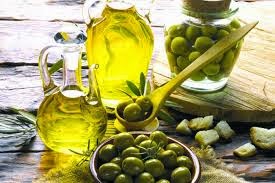These tasty tension tamers can help boost your mood and protect your body.
1. Fish
To keep stress in check, add omega-3 fatty acids to your diet. These essential fats may help moderate stress hormones and protect against depression. You could pop a fish oil supplement, but the most delicious way to get them is through food. For a steady supply of feel-good omega-3s, aim to eat three ounces of fatty fish at least twice a week or a handful of walnuts every day.
2. Dark Chocolate
Research points to stress-relieving properties of dark chocolate that go beyond the taste buds. In a large German study, those who ate the most dark chocolate over ten years had lower blood pressure than those who ate the least. Another study showed a reduction in a stress hormone in people who ate dark chocolate often. Alas, dark chocolate still has “not-so-good-for-you fat, sugar, and calories,” registered dietitian Kathleen M. Zelman reminds us, so stick to a few small squares a day.
3. Black Tea
Research from London suggests that drinking black tea may help you recover from nerve-racking events more quickly. Study participants who drank four cups of black tea every day for six weeks had lower levels of the stress hormone cortisol and reported feeling more relaxed after stressful tasks than those who didn’t drink the tea. Other studies have touted black tea’s mood-boosting effects and suggested it can help increase alertness throughout the day.
4. Avocados
The flesh of these delicious green fruits is loaded with two powerful stress fighters: potassium and monounsaturated fatty acids. Both nutrients can lower blood pressure, and monounsaturated fatty acids (MUFAs) may play a part in helping ward off depression. In a large 11-year study, the more MUFAs Spanish participants ate, the less likely they were to be depressed. Researchers think the fats may improve how the brain absorbs the mood-boosting neurotransmitter serotonin.
.jpg)




.jpg)









.jpg)








.jpg)

.jpg)
.jpg)